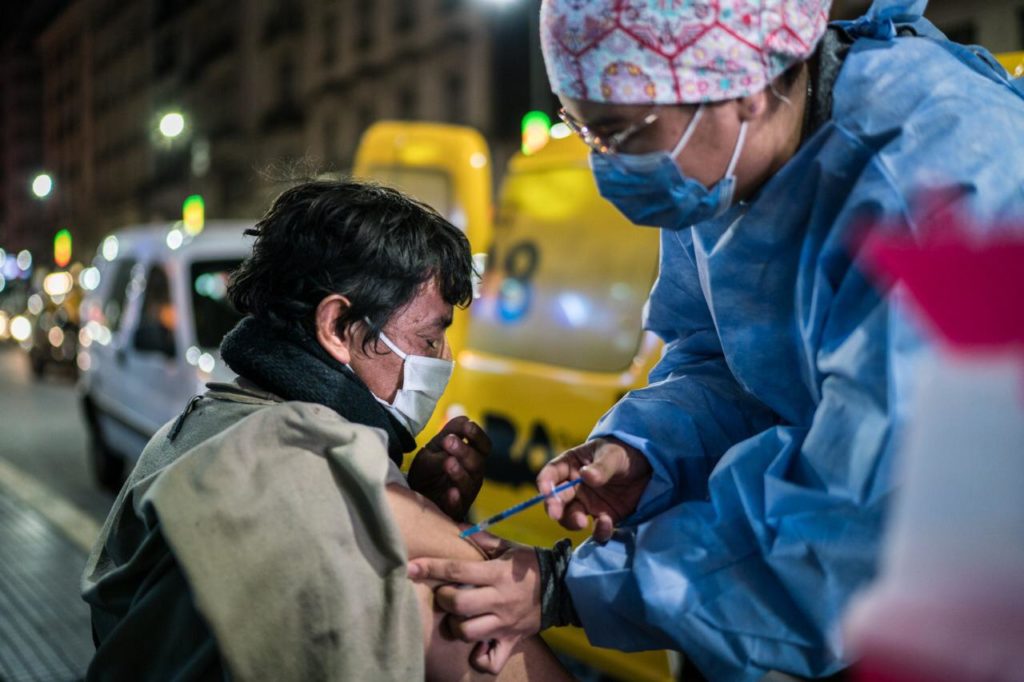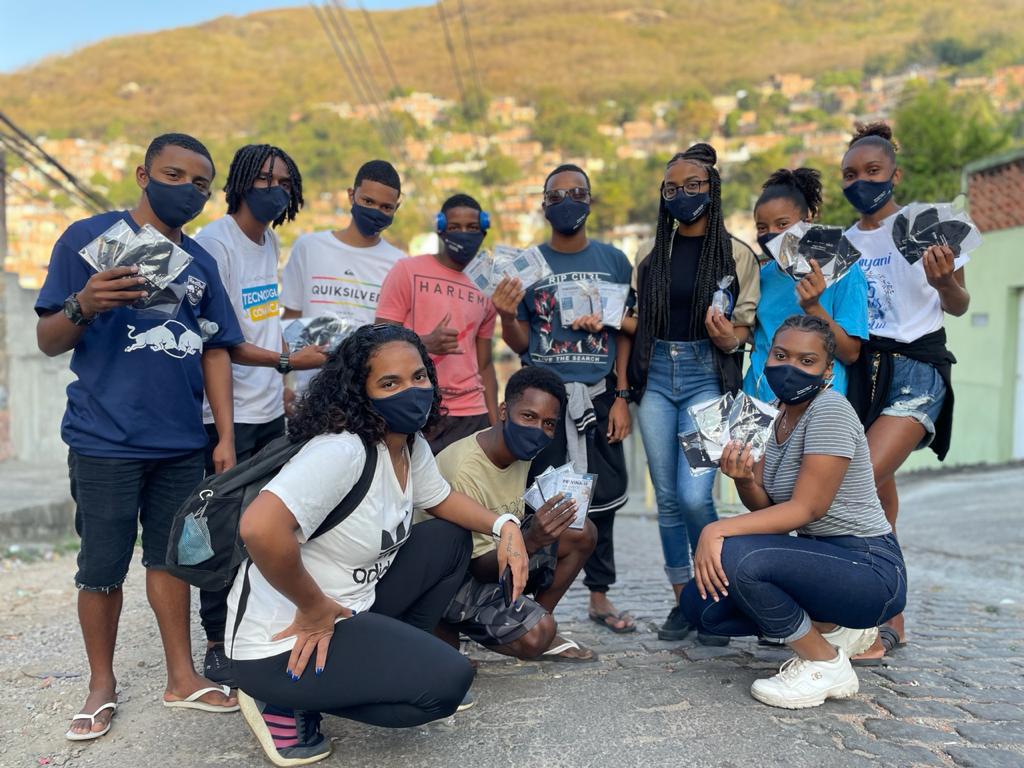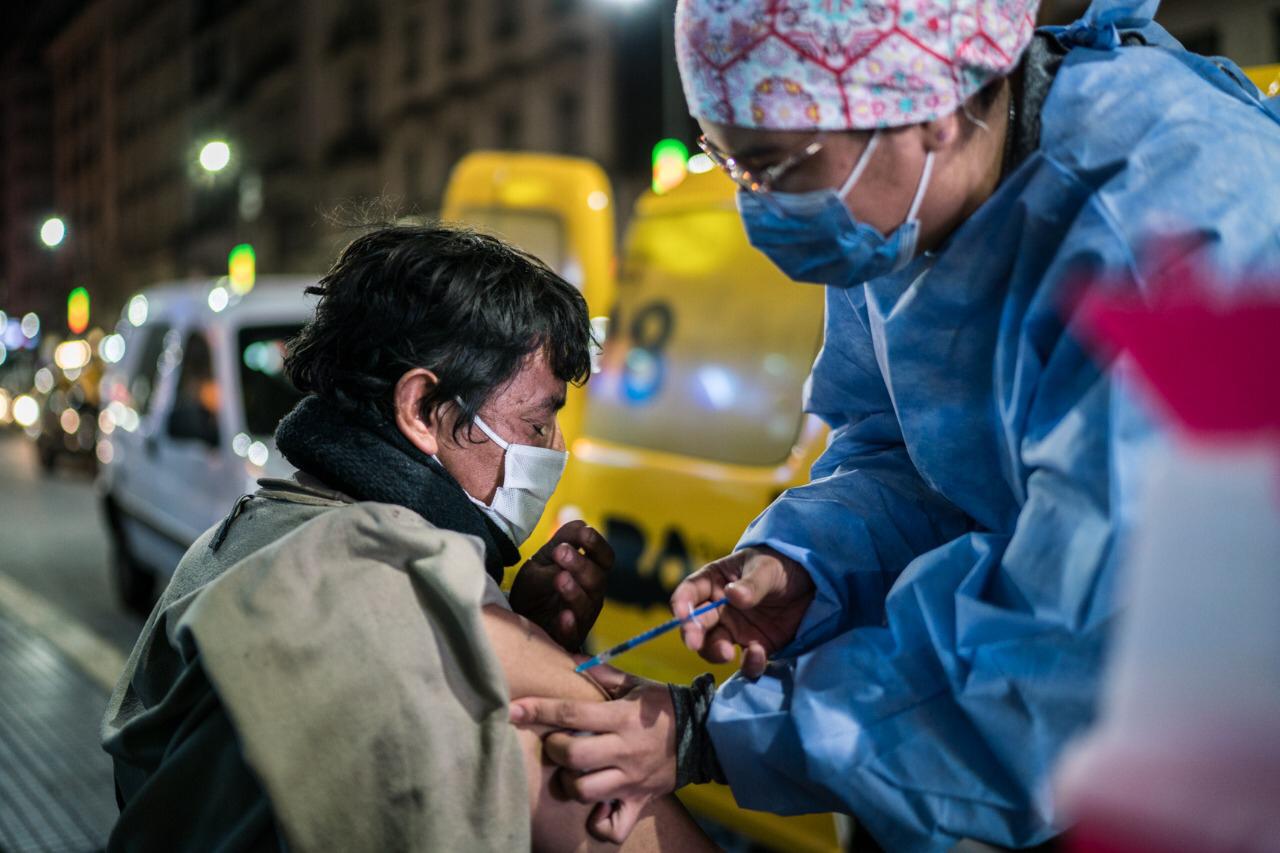Access to COVID-19 information, vaccines and care is more challenging in some communities than others. This can be due to economic inequities, misinformation or lack of trust in government or health institutions. As cities work to bring down the COVID-19 infection rate and improve public health overall, the solution is often a targeted approach using peer-to-peer communication and other evidence-based strategies while also incorporating new lessons from the pandemic.
With support from the Partnership for Healthy Cities, three cities—Buenos Aires, Argentina; Rio de Janeiro, Brazil; and Kigali, Rwanda—designed COVID-19 outreach initiatives that got to the heart of why people might hesitate to get vaccinated—and dispatched the messengers most likely to be trusted. Here are their stories.
Get Our Latest Public Health News
Join our email list and be the first to know about our public health news, publications and interviews with experts.
1. Buenos Aires, Argentina: The peer-to-peer “Butterfly Effect” project vaccinates people experiencing homelessness

When Buenos Aires set out earlier this year to vaccinate its unhoused residents, public health officials knew it would take a multi-pronged strategy to address vaccine hesitancy among this population and encourage their participation.
A coalition of local groups devised the Efecto Mariposa (Butterfly Effect) by enlisting and training 44 formerly unhoused people to design an outreach program and implement one-to-one communication about COVID vaccines. The four-month project was a stunning success: More than 10,000 people who were unhoused or in “situations of social and housing vulnerability” were vaccinated, and an evaluation of the project generated actionable and practical recommendations for future outreach efforts.
Project researchers conducting the evaluation learned that in addition to the general mistrust that unhoused people have in medical institutions, they had been deterred from getting vaccinated because they were afraid of losing their jobs, and of not having a safe place to recover, in case of severe vaccine side effects.
The evaluation recommended that future vaccination drives should take place outdoors and during the day, target areas where unhoused people are already located, and eliminate bureaucratic barriers such as online registration or identity documentation. Engaging and compensating peer companions to do the work was strongly recommended as well—a process that in the case of the Butterfly Effect, many companions themselves found very rewarding.
2. Rio de Janeiro, Brazil: These outreach workers speak the language of young people

COVID-19 rates remained relatively high among Rio de Janeiro’s youth by the middle of 2021, so the city hired and trained a team of teenagers and young adults to develop COVID-19 prevention messaging specifically targeting their peers—and delivering those messages in the neighborhoods where they live.
The Fala Juventude (Youth Speak) community engagement project began with a two-week virtual workshop to train 30 young people in public health communication. During the training, the young people learned about the Brazilian health system, COVID-19 prevention measures, and proven methods for communicating. The project invited the trainees to use audiovisual, print and other communication tools to design entirely new materials that would appeal to their peers. Here are two of the videos they created:
Finally, the team was dispatched to three areas of the city—Lins de Vasconcelos, Rocinha and Cidade de Deus—where they distributed 2,500 face masks and 2,500 bottles of hand sanitizer and spoke to almost 1,500 people about the importance of prevention measures, vaccinations and more.
3. Kigali, Rwanda: Vaccine testimonials to convince an entire city
The city of Kigali launched a Partnership-supported communication campaign in July 2021 to address vaccine misinformation and hesitancy. The campaign aimed to convince all 1.1 million residents of Kigali that the shots are safe and effective, while also informing residents when and where to get them.
The city has a solid record of being able to achieve such a goal, with earlier COVID-19 campaigns having reached nearly 100% of residents through the combined use of television, radio, social media and in-person outreach.
Testimonials by people who received the vaccine were at the core of the social media campaign. Residents spoke on video about positive experiences with inoculation and explained their motivations. For example, a market vendor spoke about her desire to protect fellow vendors. Complementing the digital campaign, the city trained 3,747 community health workers on COVID-19 vaccine effectiveness messaging.
The resulting two-month social media and billboard blitz was a resounding success. By September 2021, 93% of Kigali’s population had received a first dose and 56% also a second. In addition, these campaigns earned trust from the community, positioning the city government as the main source of accurate information on COVID-19.
Read more stories about COVID-19 outreach campaigns in cities that are part of the Partnership for Healthy Cities global network.
About the Partnership for Healthy Cities:
The Partnership for Healthy Cities is a prestigious global network of cities committed to saving lives by preventing noncommunicable diseases (NCDs) and injuries. Supported by Bloomberg Philanthropies in partnership with WHO, as well as Vital Strategies, this initiative enables cities around the world to deliver a high-impact policy or programmatic intervention to reduce NCDs and injuries in their communities. For more information, visit: www.cities4health.org and https://partnershipforhealthycities.bloomberg.org/ and
By collaborating with WHO and Resolve to Save Lives, an initiative of Vital Strategies, the Partnership for Healthy Cities COVID-19 Response is working hand-in-hand with the world’s leading experts on epidemic prevention.
